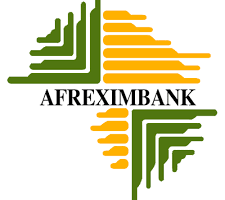The Nigeria equity market recorded good performance in January 2024 despite sell-offs and profit taking activities witnessed in the market. In this report AMAKA IFEAKANDU looks at the factors that contributed to the growth of market within the period.
The Nigerian equity market was bullish and volatile in the month of January, recording positive growth at the end of the month, despite profit taking and selloff experienced in the market in the last two trading sessions of the period.
The market which opened at N40.917 trillion appreciated by N15.508 trillion or 37.90 per cent to N56.425 trillion at the close of trading on Wednesday January 31, 2024.
The NSE All Share Index also increased by 26380.68 basis points or 35.28 per cent to 101154.45 points, after touching a high of 105.005.83 points from 74773.77 it opened in January this year.
The NGX benchmark index and market capitalization within the period grew higher, crossing the 100,000 million mark and N50 trillion mark, to indicate a bullish trend as the Naira depreciation makes Nigerian stock cheaper, attracting more inflow.
Volume of trades for the period rose significantly by 131.85 per cent, at 19.29 billion shares, as against 8.32 billion units recorded in the preceding month.
Comparing trading activities for the month and previous years within the same period it showed that January sustained this positive trend and patterns for five consecutive years due to positive sentiments and impact of inflationary pressure on asset prices in the face of mixed corporate earnings inflow and increasing global and domestic headwinds.
Growth trend
The good performance of the market in the first month of this year was as a result of buying interest across the major sectors, the small, medium and large capitalised stocks.
investment in the blue chip companies and dividend paying stocks also rallied to support the uptrend recorded in the first month, despite the market’s disconnection from economic reality.
The expectation for companies’ audited earnings report for the 2023 financial year, especially for early fillers encouraged more investment in the market. The release of the first audited result for 2023 from Geregu Power, especially the announcement of N8.00 dividend per share supported the market growth.
Other sundry factors like institutional players holding their positions and the seeming gradual return of foreign investors that supported the rally and improved number of deals and volume during the trading month.
Best performing stocks
The best-performing stocks for the month under review arises from small, medium and high capitalised stocks across the sectors.
Dangote Cement was the best stock for the month with a gain of 138.51 per cent, as a result of buying sentiment and position taken by high net worth investors. It was followed by BUA Cement and McNichols with a growth of 90.72 per cent and 89.29 per cent respectively. Initiative Plc rose by 79.13 per cent while Wema Bank chalked up by 78.57 among others.
Low performing stocks
On the contrary, C & I Leasing recorded the highest loss within the period under review, shedding 33.16 per cent as result of selloffs and markdown for bonus shares; followed by Daar Communication which shed 25.56 per cent due to profit taking from its recent rally. Champion Breweries’s share price fell by a further 14.94 per cent, Tantalizer lost 10.64 per cent of the year’s opening value, due to profit taking and selloffs as investors’ seek to reposition in dividend paying stocks with prospect of future growth in earnings that will drive share price and payout in 2024.
Operators view
Reviewing the performance of the market in the month of January, Chief Research Officer Investdata Consulting Ltd, Mr Ambrose Omordion said the market had a strong bull-run as result of buying interest across the major sectors, the low, medium and large cap stocks, as well as accumulation of shares in Seplat, Dangote Cement, Geregu Power, BUA Cement, MTNN, Airtel, Dangote Sugar, Nascon, Transcorp and other financial service stocks. These include blue chip companies and dividend paying stocks that had rallied to support the uptrend recorded in the first month of the post-general election year, despite the market’s disconnection from economic reality.
“We cannot overlook the effects of recent events, especially the upgrade of Nigeria’s economy by rating agencies, the disconnection of the benchmark rate at 18.75 per cent, from other rates like NTB primary market auction rates in the short and long tenors.”
He said within the period, “there was also the bearish and mixed outlook for fixed income instruments due to the rising inflation and unclear policy direction of the fiscal and monetary authorities.
“These factors helped January patterns repeat itself and extended the bull run for the fourth successive month.
“At the end of January, the Nigerian equity market continued December’s positive outing, rallying to support the recovery noticed in the market since March 2020. This was despite the uptick in December inflation rate to 28.92% according to data from the National Bureau of Statistics (NBS).”
Managing Director/Chief Executive Officer, Arthur Steven Assets Management Ltd, Mr Olatunde Omolegbe while reviewing market and making projections for 2024, said President Bola Tinubu statement during inauguration in May last year helped to raise investors confidence in the market.
He said the President’s economic policies and other promises that his administration will create millions of jobs in a bid to tackle the problem of unemployment contributed to the stock market growth as such pronouncement encouraged many investors, especially local investors to play in the equity market. Describing the stock market as both a current and futuristic market, he said that if at the end of day the government fails to fulfil all the promises the market will on its own adjust downward.
Market outlook
On the market outlook, Omordion said “volatility and oscillation are expected to continue in the new month, even as the outlook remains mixed due to likely price corrections, or pullbacks due to profit taking and portfolio reshuffling ahead of year-end and 2024 corporate actions and MPC meeting. The anticipated correction in the new month will, however, strengthen recovery despite the rise in inflation, insecurity and the global economic headwinds.”
Omordion said “the market is still trading within the long term bullish pattern, despite the pullbacks on profit taking and price correction, any moment from now as dividend season draws closer, depending on market forces, the market may rebound powerfully.
“The benchmark index momentum remained mixed and strong on a weekly and monthly time frame, reflecting an increased inflow of funds that pushed stock prices up in the first month of the year, extending the historical positive sentiment in January effect trend, while maintaining the pattern of uptrend during the month in recent years.”
Omolegbe on the other hand, said substantial earnings growth is expected to sustain market sentiment, adding that the equity market expected to out-perform in response to inflation as well as a positive corporate earnings report. He also expected to see ASI recording up to 35 per cent gain in 2024.
On the fixed income market, Omolegbe said given the heightened inflationary pressure, the interest rate might take time to adjust to fund raising activities and besides the negative yield spread is just too large.
He said there is a need to minimise exposure to cash in an high inflation environment. He also projected that average yield in the fixed income market will float between 14-46 per cent by the end of the year 2024.




